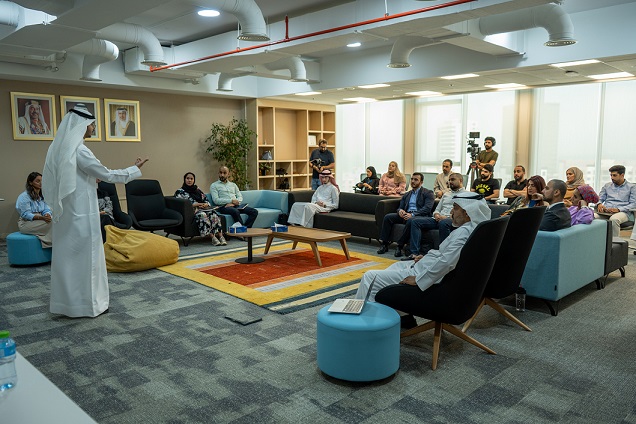The Arabian Gulf University (AGU) has won the 2023 Times Higher Education MENA (Middle East and North Africa) Award for the category of Most Innovative University in Digital Education Technology in the Middle East.
The judging committee announced yesterday during the summit of universities in the Middle East and North Africa held in Abu Dhabi that AGU surpassed eight Arab universities that qualified for the final list in this category.
These universities include Qatar University, Abu Dhabi University, Lebanese American University, Gulf Medical University, New York University Abu Dhabi, British University in Dubai, and Modern University for Business and Science.
On this occasion, Dr Saad bin Saud Al Fahaid, President of AGU, congratulated the team responsible for this achievement. He revealed that AGU is committed to its vision of becoming an innovative GCC university that serves as a model for local universities in transferring advanced sciences and technologies, offering unique and rare specialisations, and introducing the latest research and technologies.
He further emphasised that AGU has taken significant steps in recent years to develop a digital education system that enhances the interaction between teachers and learners, improves educational outcomes, provides access to scientific materials and various resources for students, and enables faculty members and college officials to monitor the educational process, research sessions, and training activities, as well as evaluate performance using updated electronic indicators.
Furthermore, this award is granted to universities that have made a distinguished contribution in technological and digital innovation in education. The selection of AGU came after 300 higher education institutions from 17 countries and regions applied for the awards competition in various categories. Out of these, 75 universities qualified for the final round.
On his part, Prof. Dr. Abdel Halim Dhaifallah, Dean of the College of Medicine and Medical Sciences (CMMS), stated that AGU has won more than four awards this year for its development of innovative projects based on digital education platforms.
He added that one of the most notable projects in digital education development is “Lucina AR,” which represents a significant breakthrough in teaching female anatomy and complex birthing scenarios. It is a high-fidelity model that utilises both artificial intelligence and augmented reality to train students on various childbirth complications.
On his part, Mr Arpan Stephen, E-Learning Expert at the CMMS, explained that AGU has developed an electronic student portfolio programme, adding that it includes a comprehensive analytical dashboard that captures the experiences of clinical stage students during their practical training.
Additionally, AGU has launched an electronic portal that encompasses all the students’ academic needs, including a learning management system, classroom system, attendance system, testing application, and educational goal assessment, he stated.
It should be noted that the CMMS has also introduced a system to broadcast lectures, seminars and surgical operations digitally and interactively between King Hamad University Hospital (KHUH) and the College.
It also established the Clinical Simulation Centre at the CMMS to reinforce the educational curriculum with clinical skills through simulation training on electronic dummies that show multiple symptoms so that they appear to be real patients, making the practical training process easier and helping to develop clinical skills of students through the latest international medical methods.
Moreover, the University launched the leadership and professional skills development programme, and the “Simplified Pharmacology” educational channel on YouTube, which allows medical students and the general Arab public to learn about different medical topics related to drug uses, specifications, effects and side effects.
In addition, it adopted the use of the DXR clinical programme, which is a virtual hypothetical hospital that interactively displays patient cases for students to diagnose diseases and propose appropriate treatments. Also, it created electronic boards for broadcasting surgical operations and live lectures inside and outside the university, in addition to the 3D electronic table used in anatomy and radiology.




